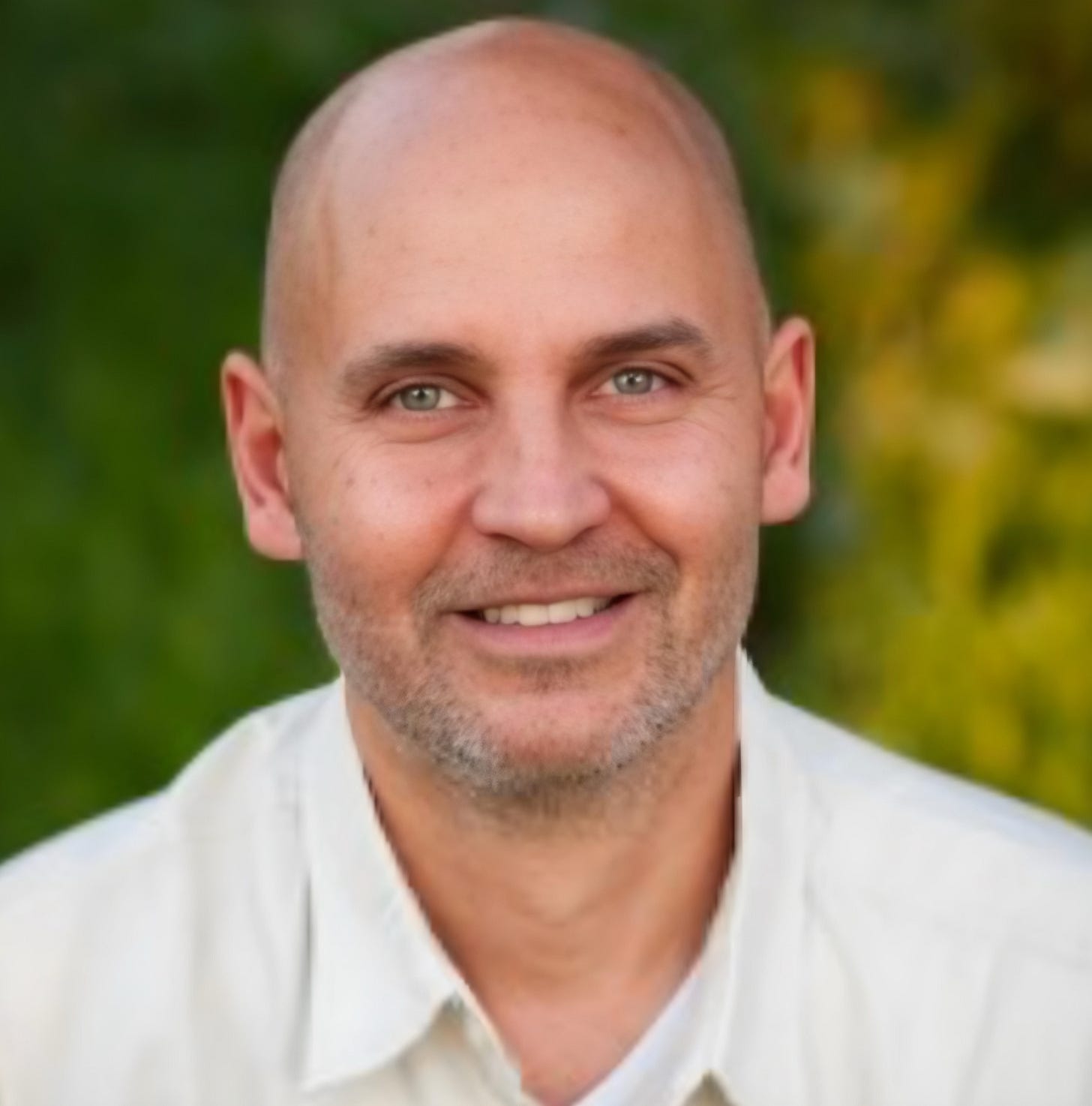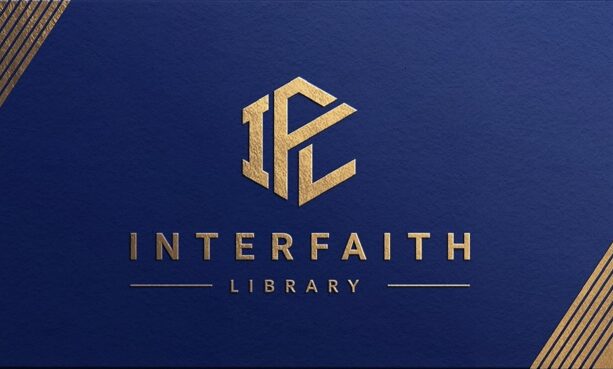Reflections on my conversation with Sam Vadakekut—Created in the Image of God, Ep. 153
JUN 10, 2025

If you’ve read my trilogy, you’re already aware that the concept of “ownership” has stalked me, shaped me, and—at times—haunted every movement of my journey. Like so much else, it all began in the friction between places, and the tug-of-war between competing narratives about where we come from, what belongs to us, and who, if anyone, is owed anything.
A Childhood on Shifting Ground
The People of the Sign opens with a kind of exile: born in Canada, kidnapped from America, then whisked away to Sweden. Each border crossing rewrote the story of “mine” and “theirs.” My early years unfolded as a drama of economic and ideological counterpoint. I remember the epic Olympic hockey battles—Sweden, Canada, Russia, each one a nation with an economic theology and a worldview—each game a metaphor for competing systems: American capitalism, Swedish socialism, Soviet communism. Even the food on my plate, or the sports on the television, were frames for understanding what we own, what we share, and what we strive to possess.
Those moments were not mere backdrops—they pressed up close. To be a child who does not know what is his to claim is to become a wanderer in matters material and spiritual alike. For me, that seed grew into a relentless drive. The idea of “taking ownership” wasn’t just a value; it was survival—a shield raised against dislocation, rootlessness, or being seen as a perpetual outsider.
Occupy, Ownership, and the Call to Take Root
In The Hardness of the Heart I address the Occupy Wall Street movement. Young people, some echoing my own adolescent indignation, occupied parks and plazas across the country. But even then, I saw an irony: you can’t truly “occupy” that which is not yours to own. To stake a tent in the middle of Manhattan—on land you don’t govern, power you don’t wield, policies you never shaped—may protest injustice, but it does not plant deep roots. This was a foreshadowing of the current issue of illegal immigration.
I wrote then, as I still believe, that the renter’s mentality only gets you so far. True change—personal, familial, social—requires the courage to take ownership. Not in the sense of dominating what lies before us, but in accepting the responsibility for our own corner of the world. In The Rod of Iron, this theme crystallized: one must “own” one’s decisions, mistakes, and—most vitally—one’s calling. The path of true adulthood is marked by open doors, not squatted spaces.
Sam Vadakekut: A New Angle on Stewardship
So it was with some surprise that my conversation this week with Sam Vadakekut on Created in the Image of God shifted the ground again beneath my feet.
Sam, a fellow traveler across continents and systems, has built his career teaching entrepreneurs and families about the vital union of faith, finance, and legacy. Sam’s mantra? “We are not owners, but stewards.” At first hearing, part of me bristled. Hadn’t I spent decades encouraging others—not least myself—to cast aside the renter’s mentality and truly own their lives? Didn’t taking responsibility lead to freedom—and, ultimately, transformation?
But Sam pressed deeper. Ownership in this world, he reminded me, can become a new idol. Yes, we are called to take responsibility—but always with the humility to remember: it isn’t really ours. We can’t take it with us. Jesus, after all, put it plainly to the rich man who had kept all the commandments: “Go, sell what you possess and give to the poor, and you will have treasure in heaven; and come, follow me.” (Matt. 19:21). We cannot serve two masters, God and Mammon.
Dust and Dividends: The Wisdom of the Prophets
Two quotes reveal the crux of the contrast—one that speaks to the spiritual tension between ownership and acceptance, between dominion and humility:
- From the Báb:
“Every man of discernment, while walking upon the earth, feeleth indeed abashed, inasmuch as he is fully aware that the thing which is the source of his prosperity, his wealth, his might, his exaltation, his advancement and power is, as ordained by God, the very earth which is trodden beneath the feet of all men.” - From ‘Abdu’l-Bahá:
“Make me as dust in the pathway of Thy loved ones.”
If my early life taught me to demand ownership—my flag in the sand, my tent in the square—this wisdom presses toward its inverse: the humility to recognize that even the ground beneath my shoes is lent to me, no matter how many deeds or accounts have my name on them.
Abashed—that’s the word. Every gain, every possession, every ounce of power is, at best, stewardship of something that is not finally mine. From this vantage point, “ownership” is a trial, a trust, a chance to learn the deeper arithmetic of gratitude and surrender.
The Seduction and Surrender of Control
The conversation with Sam returned again and again to this invisible dividing line. We are called to take bold action—to shape our environment, seize opportunity, nurture family and community. But the spiritual risk is that, in “owning” things, we fall in love with the illusion of control.
If life has taught me anything, it’s that what we cling to most tightly can vanish overnight. My books are full of unearned reversals: promotions withdrawn, marriages upended, homes lost or sold. Each time I tried to “own” the assignment, the company, or even my destiny, it became clear that ultimate control remained with the Author, not the hired hand.
Yet this is not a call to resignation, but to right-sized stewardship. Jesus did not say, “Be passive.” He said, “To whom much is given, much shall be required.” (Luke 12:48). The world is God’s, and the fullness thereof, but we are assigned our portion—be it small or great. What matters is not the size of the field, but how we tend it.
The Final Ledger: Taking Responsibility… and Letting Go
So how do I now thread the needle between the gospel of ownership and the humility of stewardship?
- Encourage others, as I have always tried, to take ownership of their lives. Don’t drift in a “renter’s mentality.” Claim your gifts. Write your story. Build your home—whether literal, relational, or spiritual—with intention and courage.
- And yet, keep your name written in pencil, not chiseled in pride. Remember the ground you walk on is not yours in perpetuity. In the end, all that is “owned” here will be returned.
- Steward what God has placed in your hand with vigilance, faith, and a willingness to lay it down if asked.
This is the paradoxical heart of faith—and the through-line of my own journey. I once believed that to own was to arrive; now I see that to steward is to continue growing. To take responsibility is good, but to do so in the humility that asks, daily, “Make me as dust in the pathway of Thy loved ones”—that is the greater calling.
Looking Ahead: From Ledgers to Love
This week, we keep building—shifting the conversation from financial trust to perhaps the greatest stewardship of all: that of family, forgiveness, and the prodigal heart. I’ll be joined by Laine Lawson Craft, author of The Parent’s Battle Plan, as we wrestle with what it means to be entrusted with the care of our children—sometimes “owning” only our repentance and our welcome, waiting like the father in Jesus’s parable for the return of someone we love.
Until then, I invite you to ponder: What do you truly own? What are you stewarding—be it wealth, influence, talent, or pain? And how could letting go transform your encounter with God, your neighbor, and yourself?
With gratitude for each of you who shares this journey—
Wade Fransson
If this reflection resonates, subscribe and join the weekly exploration as we keep searching for the true arithmetic of life—balancing faith, action, and the humility to stand abashed upon the earth that makes all things possible.
About The Author

Wade Fransson is a former Christian Minister who served in numerous countries, including many in Eastern and Western Europe, South Africa, and the United States. His religious tradition included a deep appreciation for Judaism, in which they observed the Jewish Sabbaths and Holy Days from a Christian vantage point, giving him unique insights into progressive revelation. In 1981, he visited the Baha’i World Center, during which he participated in the City of David archaeological expedition in partnership with Ambassador College and Hebrew University. Twenty-five years later, he embraced the Baha’i Faith, publicly declaring his commitment along with his wife, Angela, in 2007. Inspired by his first pilgrimage in 2010, Wade founded Something Or Other Publishing and SOOPmedia, two innovative platforms for aspiring and established authors through a patented model that integrates the most effective elements of traditional and self-publishing. Wade and his family are proactive participants of the Baha’i Community, launching projects such as The Royal Falcon Foundation and the weekly podcast “Created in the Image of God.”
Enjoy the legacy offer on my book trilogy— available exclusively at Something Or Other Publishing: https://soopllc.com/product/legacy-offer-wade-franssons-book-trilogy/
Created in the Image of God is a reader-supported publication. To receive new posts and support my work, consider becoming a free or paid subscriber.
